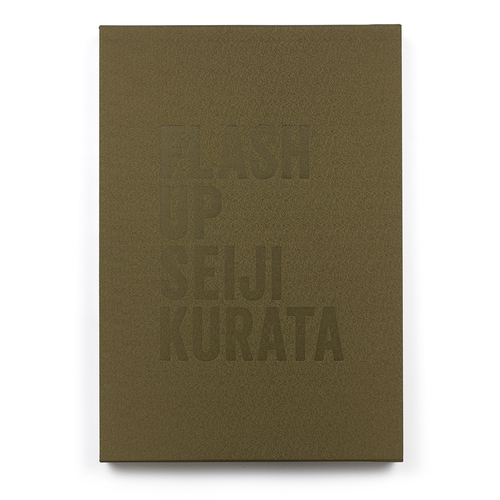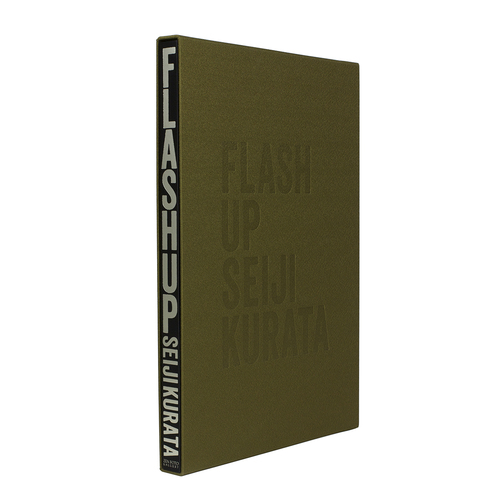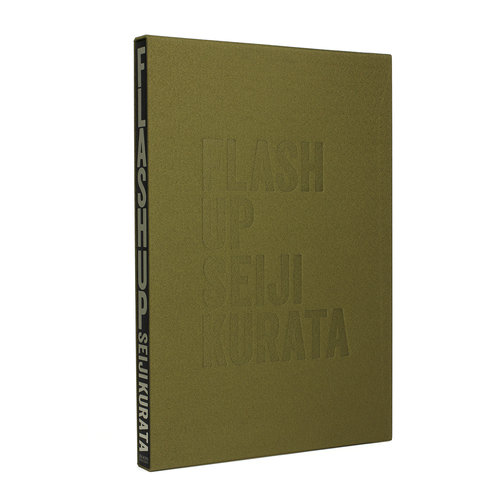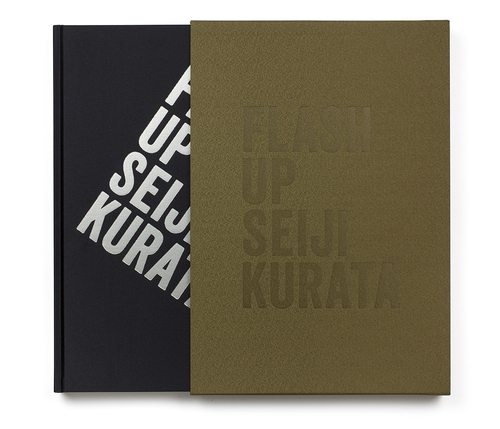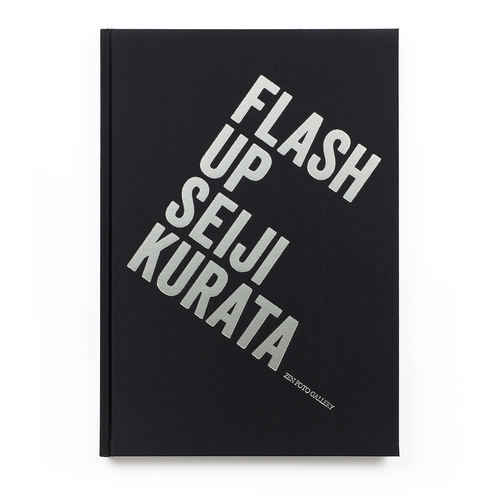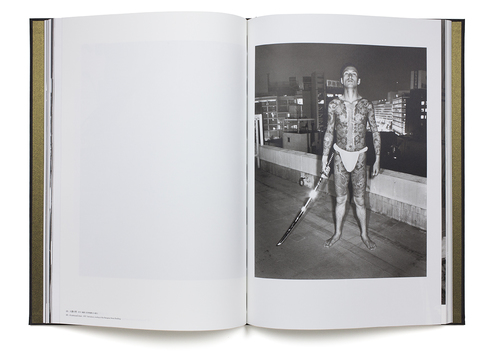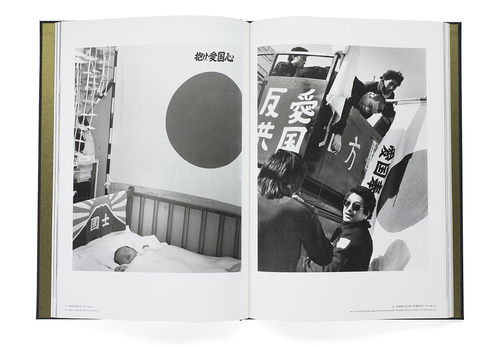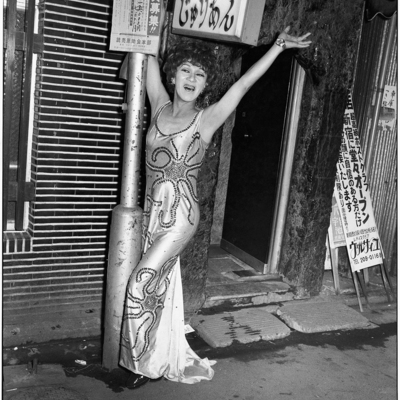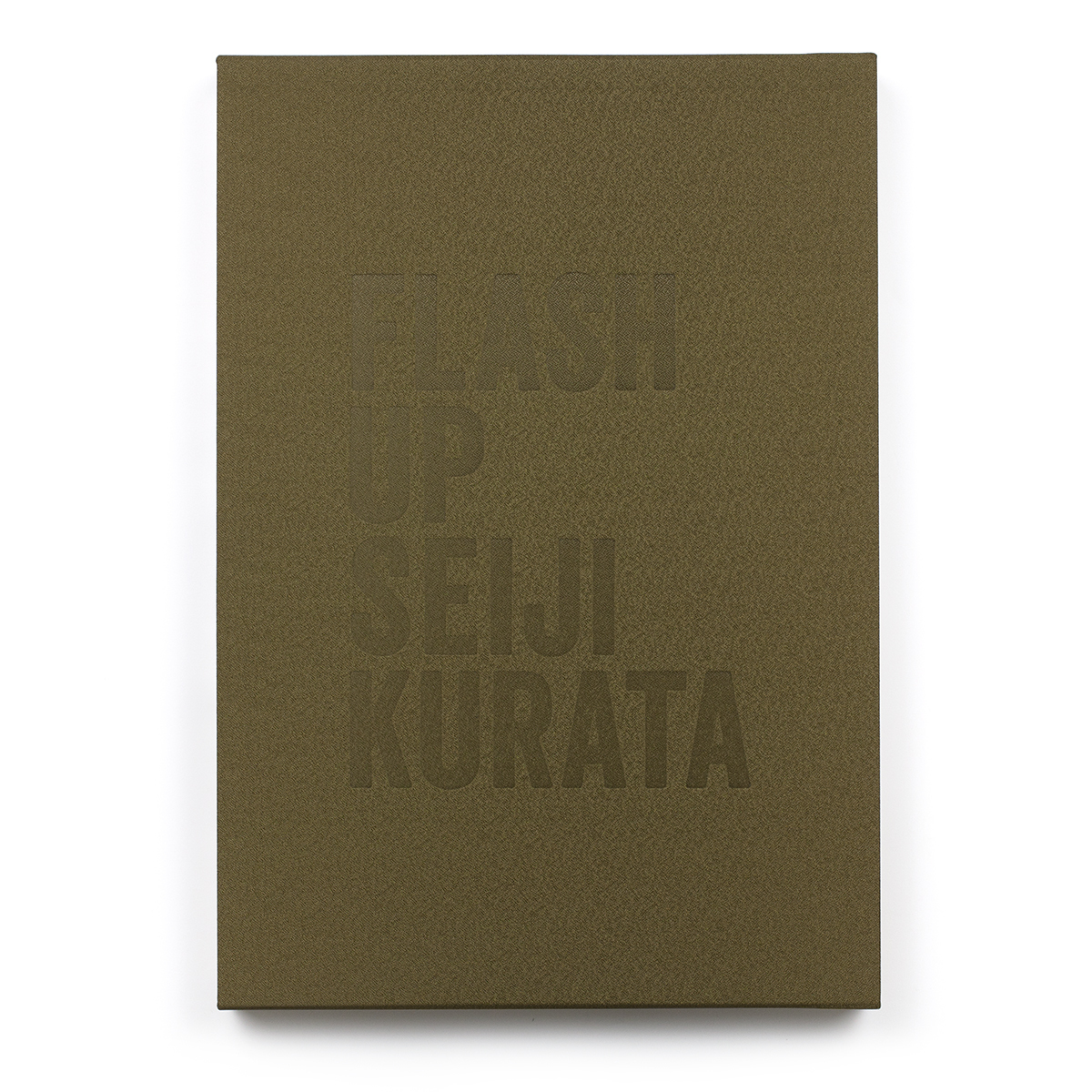
Flash Up 2013 New Edition
Flash Up by Seiji Kurata is one of the most exciting photographic excursions into the seedy parts of 1970s Tokyo. Kurata, a natural who began his photographing career doing workshops with revered greats such as Daido Moriyama and Araki Nobuyoshi, takes us on a journey through the nightclub scene of Ikebukuro and Shinjuku, he shows us glimpses of the cocky, tattooed yakuza underworld and of violent Bosozoku street fights, contrasts car crash victims with portraits of nightclub hostesses and the horny salarymen groping them for money, documents ultra-right wingers in Meiji Jingu and on tour in the countryside.
This is the book that earned Kurata the Ihei Kimura award in 1980. His instinct for finding and framing interesting subjects translates into a remarkable document of the Tokyo nightlife. Unlike the more expressionistic styles of his “Provoke” teachers Moriyama and Nobuyoshi, Kurata’s medium-format photos possess an almost journalistic clarity and carry with them an air of documentary photography without sacrificing a certain energy and sense of immediacy. Furthermore, Kurata is talented in getting just enough information into his photos to allow for stories to unfold in the viewer’s head. Take his “Fighting after the Disco, 1978, Ikebukuro” as an example: a group of seemingly caring men surround a bleeding victim who is being helped, and while the viewer is pondering what might have led to all that blood shed on the street in the foreground, the eyes wander to the inconspicuous, well-dressed magician (?) in the crowd who poses and smiles for Kurata’s camera as if he’s ordered him to take his portrait.
Writes the artist in the afterword about his book, “Flash Up has a style, an attitude and consciousness that did not change from the beginning. It was accumulated during those four years after starting Street Photo Random in 1975. Above all, in the production of these “snapshot” photographs I searched for footholds whose existence was unknown, while ignoring the haphazardly distributed noise and information of our everyday world.
This world of photography is amazing. Here is the strangeness of the unknown and the surprise of the unforeseen. Even though it lasts only a moment, this brightly shining band that stretches across the sky, it can tell the story of all existence, all affirmed and all accepted.”
Originally published in 1980, this beautiful 2013 edition by Zen Foto Gallery features large high-quality prints of the original book and two essays by the artist himself in both Japanese and English.
Living in Tokyo is a journey. Can there be any city that has such transformations? My life's journey began in this city, if perhaps a little late.
One day when I was not so young, at a time when my sense of reality had been progressively diluted and anaesthetized, I fell into a state in which my reality was dilapidated and ruin inevitable. As I struggled with
fear and uncertainty, these symptoms became more pressing. Quickly turning off the television, unthinking I reached out for a camera, that piece of optical apparatus…this was my beginning with photography. At the time
I was earnestly seeking the medium for my expression, but had not yet found the answer. Surely I was being drawn inexorably into the world of television, about to join forever the legions of zombies.
Having renounced thoughts of past days and pulled away from my resignation, I discovered the new consciousness to be a cultural wasteland. However, through photography I could begin to gain some awareness of the essence of things. Thus began the photographic life that now drew me: to the outside, to the front, to the street, and to reality and phenomenon. Photography copes with the intervals of time and space, is functional, safe, captivating and a convenient tool for homo mobilis. If used effectively, it would become the recording instrument for the channel leading to the awakening of my life, would sharpen my senses, and be a trusted guide to expand my perception.
Thus I have maintained a continuing dialogue with the camera accompanying me. Through constantly shifting reality and phenomenon, for 35 years I have continued as in a dream the camera work and techniques that could at any time become obsolete. However, Flash Up has a style, an attitude and consciousness that did not change from the beginning. It was accumulated during those four years after starting Street Photo Random in 1975. Above all, in the production of these “snapshot” photographs I searched for footholds whose existence was unknown, while ignoring the haphazardly distributed noise and information of our everyday world. It was a compellingly thrilling ordeal and, being at times on the receiving end of not a little wonderful needle that acted as a further stimulus, I have ploughed my own furrow.
And yet, this world of photography is amazing. Here is the strangeness of the unknown and the surprise of the unforeseen. Even though it lasts only a moment, this brightly shining band that stretches across the sky, it can tell the story of all existence, all affirmed and all accepted.
$113.97
- Book Size
- 383 x 265 x 30 mm
- Pages
- 184 pages, 140 images
- Binding
- hardcover, slipcase
- Publication Date
- 2013
- Language
- English, Japanese
- Limited Edition
- 750
